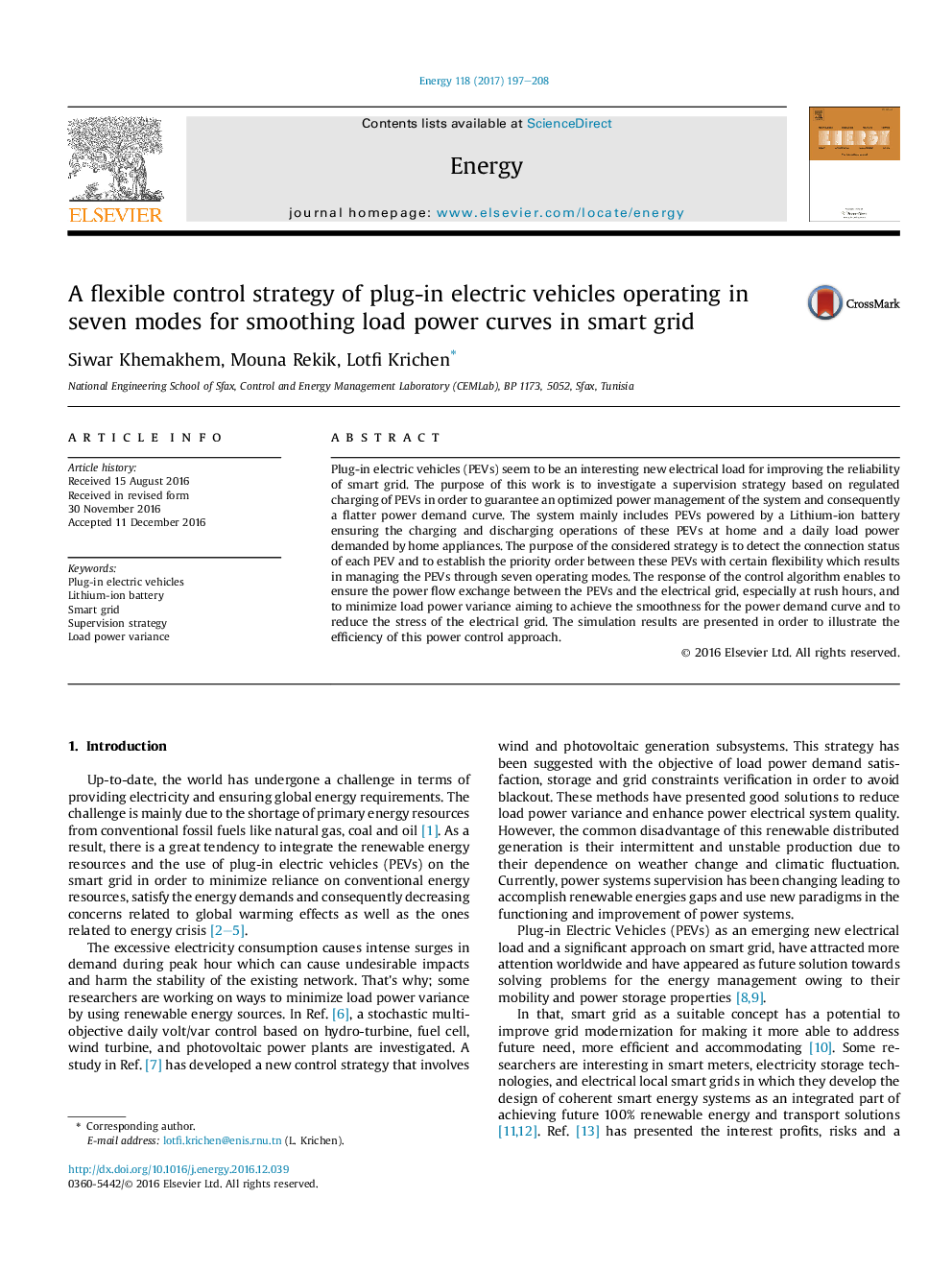| Article ID | Journal | Published Year | Pages | File Type |
|---|---|---|---|---|
| 5477053 | Energy | 2017 | 12 Pages |
Abstract
Plug-in electric vehicles (PEVs) seem to be an interesting new electrical load for improving the reliability of smart grid. The purpose of this work is to investigate a supervision strategy based on regulated charging of PEVs in order to guarantee an optimized power management of the system and consequently a flatter power demand curve. The system mainly includes PEVs powered by a Lithium-ion battery ensuring the charging and discharging operations of these PEVs at home and a daily load power demanded by home appliances. The purpose of the considered strategy is to detect the connection status of each PEV and to establish the priority order between these PEVs with certain flexibility which results in managing the PEVs through seven operating modes. The response of the control algorithm enables to ensure the power flow exchange between the PEVs and the electrical grid, especially at rush hours, and to minimize load power variance aiming to achieve the smoothness for the power demand curve and to reduce the stress of the electrical grid. The simulation results are presented in order to illustrate the efficiency of this power control approach.
Related Topics
Physical Sciences and Engineering
Energy
Energy (General)
Authors
Siwar Khemakhem, Mouna Rekik, Lotfi Krichen,
